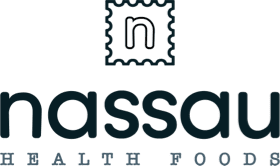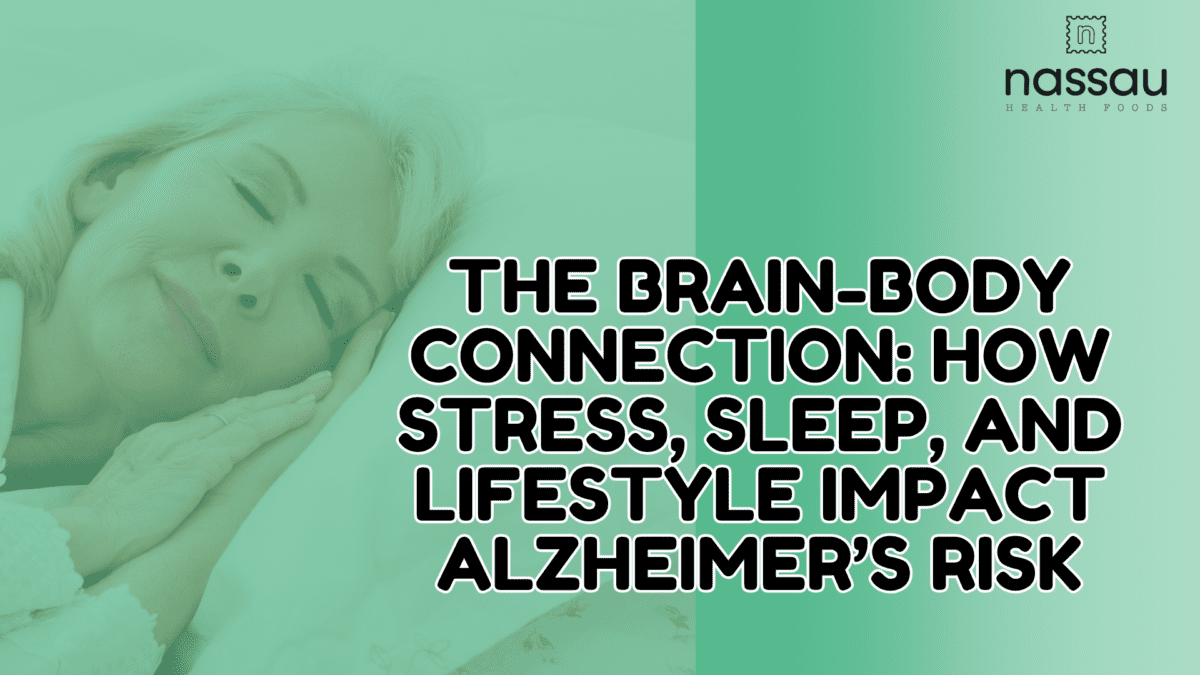EP 22: The Brain-Body Connection: 3 Daily Habits to Protect Your Memory
“Take care of your body. It’s the only place you have to live.”– Jim Rohn
Let me tell you about Susan. She’s 45, works a busy job, and is a mom of two teenagers. Lately, she’s been feeling burned out. She’s not sleeping well, skips meals, and barely has time to exercise. Worst of all, she feels like she’s constantly forgetting things—where she left her car keys, the name of someone she just met, or even her grocery list.
At first, Susan brushed it off as stress. But when she learned about the connection between lifestyle and brain health, she realized she might be putting herself at risk for more than just a bad day—she could be increasing her chances of developing Alzheimer’s disease later in life.
Like Susan, many of us don’t realize how much our daily choices—our stress levels, sleep habits, and overall lifestyle—affect our brain health. In this blog, we’ll explore how these factors are connected and what you can do to protect your brain.
Why Your Brain and Body Are Connected
Think of your brain as the control center of your body. It’s like the captain of a ship, giving orders to keep everything running smoothly. But just like a ship can’t sail well with a broken engine, your brain can’t function its best if your body is struggling.
Stress, lack of sleep, and unhealthy habits don’t just affect how you feel today—they can impact your brain’s health for years to come. Over time, these factors can increase your risk of Alzheimer’s disease, a condition that causes memory loss and other serious problems.
The good news? You have the power to take care of your brain by taking care of your body. Let’s break it down.
1. Stress: The Silent Brain Killer
“Stress is like a storm in your brain—it can cause damage if it lasts too long.”
When you’re stressed, your body releases a hormone called cortisol. A little bit of cortisol is okay—it helps you deal with emergencies, like slamming on the brakes to avoid an accident. But when you’re stressed all the time, cortisol stays high, and this can hurt your brain.
How Stress Hurts Your Brain
- Shrinking Your Memory Center: Chronic stress can shrink the hippocampus, the part of your brain responsible for memory.
- Causing Inflammation: Stress triggers inflammation in your brain, which can lead to damage over time.
- Increasing Alzheimer’s Risk: Studies show that people with chronic stress are more likely to develop Alzheimer’s disease.
How to Reduce Stress for a Healthier Brain
- Practice Mindfulness or Meditation: Just 10 minutes a day can lower stress hormones.
- Get Moving: Exercise helps burn off stress and boosts chemicals in your brain that improve mood.
- Set Boundaries: Learn to say “no” to things that overwhelm you. Your brain will thank you.
2. Sleep: Your Brain’s Reset Button
“Think of sleep as your brain’s overnight cleaning crew—it clears out the clutter and makes room for new ideas.”
When you sleep, your brain goes to work. It clears out toxins, repairs cells, and stores memories from the day. But if you’re not getting enough quality sleep, this process doesn’t work as well—and your brain suffers.
How Poor Sleep Hurts Your Brain
- Toxin Buildup: During deep sleep, your brain removes beta-amyloid, a protein that builds up in Alzheimer’s disease. Without enough sleep, these toxins stick around.
- Memory Problems: Sleep helps your brain organize and store memories. Poor sleep can make you forgetful and unfocused.
- Higher Risk of Alzheimer’s: Studies show that people who sleep less than 6 hours a night have a higher risk of Alzheimer’s.
How to Get Better Sleep
- Stick to a Schedule: Go to bed and wake up at the same time every day.
- Create a Relaxing Routine: Wind down with calming activities like reading or taking a bath.
- Make Your Bedroom Sleep-Friendly: Keep it cool, dark, and quiet.
3. Lifestyle: Small Choices, Big Impact
“Your lifestyle is like the fuel for your brain—what you eat, how you move, and how you spend your time all matter.”
The way you live every day can either help or hurt your brain. The good news? Even small changes in your habits can make a big difference.
How Lifestyle Affects Your Brain
- Unhealthy Eating: Junk food and sugary snacks can increase inflammation in your brain.
- Lack of Exercise: Physical activity improves blood flow to your brain and helps grow new brain cells.
- Mental Laziness: Your brain needs challenges to stay sharp. Without them, it can weaken over time.
Healthy Lifestyle Habits for Your Brain
- Eat Brain-Boosting Foods: Foods like leafy greens, berries, nuts, and fatty fish are great for your brain.
- Stay Active: Aim for at least 30 minutes of exercise a day, like walking, dancing, or yoga.
Challenge Your Mind: Try puzzles, learn a new skill, or read a book to keep your brain engaged.

What You Can Do Today
Taking care of your brain doesn’t have to be hard. Start with one small step today:
- Add a handful of berries to your breakfast.
- Take a 10-minute walk during your lunch break.
- Try going to bed 30 minutes earlier tonight.
Over time, these little changes add up to big benefits for your brain.
Susan’s Story: A Happy Ending
Remember Susan? Once she learned how stress, sleep, and lifestyle were affecting her brain, she decided to make some changes. She started meditating for 5 minutes every morning, replaced her late-night TV binge with a book, and made Sunday her “meal prep” day to eat healthier during the week.
A few months later, Susan felt like a new person. Her energy improved, her memory got sharper, and she stopped misplacing her keys all the time. Best of all, she knew she was protecting her brain for the future.
Your Brain Deserves Care
Your brain and body are connected in ways you might not realize. Stress, sleep, and lifestyle choices don’t just affect how you feel today—they shape your brain’s future.
The good news? You have the power to protect your brain by making small, simple changes. Start today. Your future self will thank you.
Visit the Nassau Health Store at Amelia Island or order online at https://nassauhealthfood.com





